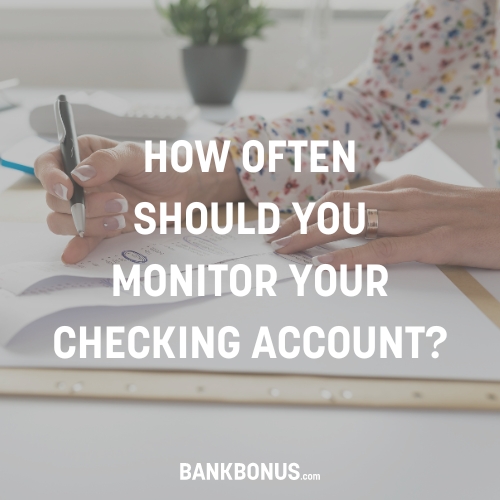Your wedding day may very well be the happiest day of your life – and the priciest. With only a dress, a small guest list, and a few modest centerpieces, you could be out several thousand dollars. And that’s before you factor in photography, catering, venue, flowers, invitations, and other expenses galore.
No matter how couples try to pare down expenses, the average cost of a wedding today is only rising. Newlywed couples are walking down the aisle blissfully broke.
But you don’t have to. You can open a wedding savings account especially designed to help you to save for the big day.
Continue reading to find out how wedding savings accounts work and how they can keep your personal finances intact.
What is a Wedding Savings Account?
A wedding account is what it sounds like; it’s a type of savings account that you open with the goal of saving money for a wedding. Typically a joint savings account, you and your significant other can make regular deposits and earn interest on the balance. Then you can save up until you reach the total needed sum, or add and withdraw funds as needed when paying for various expenses like the venue deposit.
Many banks and credit unions offer specialty savings account options for this purpose. The amount of interest you can earn on a wedding savings account depends on the type of account you opened, the account terms (i.e., 6 months or 24 months), the opening deposit, and the APY offered by the bank.
As with other savings accounts, your financial institution may limit the number of transfers or withdrawals you can make. Too many withdrawals can invoke fees for excessive withdrawals.
How Does a Wedding Savings Account Work?
A wedding savings account is a designated account for you to save money for a wedding. Generally, this type of account will offer some interest and be set up in a way you’re not tempted to take out funds for other purposes.
Using a wedding savings account can help you meet your savings goals and minimize any wedding debt.
Some couples use an auto-save feature to put extra money aside, having a set amount transferred from their checking account to their wedding fund every month. You could also set up a direct deposit with your work. Most employers will let you split your direct deposit among multiple accounts.
If you do have an interest-bearing account, see what the minimum balance requirements are in order to get the APY.
Are Wedding Savings Accounts Worth It?
If you’re planning to have a wedding, small or large, and want to avoid debt, then a wedding savings account is a good idea.
Couples who open a wedding fund are generally more likely to create and stick to a wedding budget and have realistic expectations. And you can lessen your reliance on credit cards, personal loans, or asking your parents or other family to pay for the event.
Additionally, a separate wedding savings account makes it easy to keep track of spending. You can avoid the confusion and overspending that comes with a credit card.
Also, once your wedding has passed, you can repurpose the account for other goals like a honeymoon or anniversary vacation.
¹Annual Percentage Yield (APY) is accurate as of 1/17/2024 and subject to change at the Bank’s discretion. The minimum deposit required to open an account is $500 and a minimum balance of $0.01 is required to earn the advertised APY.How Much Should You Save for a Wedding?
There’s no one-size-fits-all answer, as it depends on the type of wedding you want to have and your wedding budget.
In 2022, the average wedding cost $30,000. That’s for your run-of-the-mill typical wedding with an average of 100 guests: in a church followed by a reception somewhere with dinner and dancing, wedding flowers, cake, and photography.
That might not be your spending limit, but it could be a good starting point to work from.
In one scenario, you could save $30K over 18 months by setting aside $1,667 a month. If parents can chip in, you can forgo certain wedding nice-to-haves, or extend your saving period, you may only need to set aside a few hundred a month.
Here are some common expenses to budget when wedding planning.
- Church or ceremony venue
- Reception venue and upfront deposit
- Photography
- Catering
- Music and entertainment
- Flowers and other decorations
- Tuxedo rental
- Hair and make-up
- Dress
- Wedding party gifts
- Wedding guest favors
- Preacher donation or officiant fee
- Invitations, save-the-dates, and thank-you cards
- Drinks or open bar
- Wedding cake and confections
- Honeymoon
After you research costs, you can define your wedding budget and identify a way to reach your savings goal.
If your budget is $15,000 and you can save $500 each month, you’d need 30 months to save. If waiting 30 months works for you, then this option could work. But if you’d like to get married more quickly, you might look for ways to cut costs or up your monthly savings contributions.
Types of Wedding Savings Accounts
There are a few different wedding savings accounts to consider. We’ll go into detail below so you can find the account best suited to your needs.
Traditional Savings Account
Often called a basic or regular savings account, a traditional savings account is a secure bank account or credit union account. It generally has very low minimum open balance requirements and also low interest rates — annual percentage yields (APYs) below 0.40% are not uncommon.
There may be monthly fees, but they can often be waived for meeting some very basic requirements.
Sometimes referred to as a basic or standard savings account, a traditional savings account usually features a very low interest rate and minimum opening balance requirement. You can easily find this account at credit unions and banks. Fees can usually be waived for meeting some very minimal requirements.
High-Yield Savings Account
A high-yield savings account (HYSA) is like a traditional savings account except it offers a much higher interest rate — up to 4.5% or higher. HYSAs are usually fee-free, and they often have higher minimum opening deposits and minimum daily balance requirements.
¹Annual Percentage Yield (APY) is accurate as of 1/17/2024 and subject to change at the Bank’s discretion. The minimum deposit required to open an account is $500 and a minimum balance of $0.01 is required to earn the advertised APY.Specialty Savings Account
Many institutions will offer specialty savings accounts designed to help you save for a particular financial goal. These accounts often have. very low minimum opening deposit requirements and no maintenance fees. The account can be tied to a specific goal deadline. APYs can be similar to traditional savings accounts, but you can find better rates if you shop around.
Money Market Account
This type of account is like a checking and savings account rolled into one. You can get above-average interest rates for your balance, and also a debit card and checks to spend the funds in this account. This can be helpful for paying expenses directly from a designated wedding account. Money Market accounts commonly have a higher opening deposit and minimum daily balance requirements.
Online Savings Account
An online savings account is offered by banks or financial companies that don’t have any physical branches, or that may only have one or two. Varo Bank, Chime, and Betterment are just a few examples.
Without the overhead of physical branches, they can offer a higher rate of interest than traditional and high-yield savings accounts at brick-and-mortar banks. But this means you’ll need to use digital means, or snail mail, to make deposits. Depositing cash (gifts) can be trickier.
Certificate of Deposit (CD)
A CD is a lump sum that you set aside for a specific period of time for a guaranteed rate of return. Common CD terms range from 6 to 60 months, and APYs may be as high as 5.5%.
While a CD can keep your funds secure and receive an attractive return, a CD account is also restrictive. After you purchase the CD instrument you cannot make additional contributions or remove funds early. (Early withdrawals may result in penalties.)
If you have a large sum of money you can dedicate to wedding expenses — that you will not need to touch to pay for deposits or planning costs — then opening a high-interest CD may be one great option.
How to Choose a Wedding Savings Account
When evaluating the different options, here are some of the most important things to keep in mind.
- Interest rates: Look for the best APY for your money market account, savings account, CD, or other savings instrument. You may have to look at online-only banks to find the best rate.
- Fees: What are the monthly fees for account maintenance? What would it take for any fees to get waived? If opening a CD, what penalties or fees are there for an early withdrawal?
- Minimum deposit: How much do you need to open an account? It’s possible to open a money market account or high-yield savings account with no money down and fund it later, but generally, you’ll need at least $1,000 upfront. For a CD, you could need much more.
- Access to funds: At some point, you’ll need to be able to access the money. If you’re a spender and have a hard time saving, then a money market account or CD may impose the needed discipline to leave your money untouched. But be mindful of how much cash you’ll need on hand for expenses that must be paid early, like reception hall deposits.
Signing Up for a Wedding Savings Account
Figure out how much money you’ll need to save for your wedding and then research different options for CDs and savings accounts. Starting at your own financial institution isn’t a place to kick off your hunt, but keep in mind it may not offer the best APYs for CDs or other savings accounts — especially if you bank at a large brick-and-mortar.
Look for fee-free options where there are no monthly maintenance fees or easy ways to waive them. And make sure you have enough to cover the minimum deposit.
Then, you and your significant other should be able to open an account together online or in person at a physical bank if you prefer. You will both need to have identification (driver’s license or state-issued I.D.). If it’s requested online, you can provide the details and easily take and upload a copy from your phone.
Frequently Asked Questions
When Should You Start Saving for a Wedding?
As soon as possible after you get engaged. Or if you both know a wedding is inevitable and are waiting to get formally engaged, then start saving now.
The longer you can save and plan for your wedding, the better.
You’ll have more options, more time to plan, and can find better deals. Depending on the type of wedding you want and how much you have set aside, it could take six months to three years to save enough cash.
And even if you’re lucky enough to have enough cash to fit the bill, or a family who can, you still need to plan and set a budget.
How to Ask for Money Donations for a Wedding?
You can ask for money as a gift, whether it’s to help pay for the big shindig or if you just want cash over boxed gifts.
And cash — or checks — is what most guests prefer to gift anyway. At the last several weddings I’ve been to, the couples had traditional registries but every guest gave a card stuffed with money.
If you do have many traditional wedding-goer guests or feel you must be explicit, there are some graceful ways to do so.
- Use a cash registry website like Honeyfund or Zola.
- Set out a box for wedding cards at your reception.
- Let your parents, close family, and wedding party members know you’d prefer cash, and ask them to spread the word.
- Share, with your word-spreaders, how you intend to use the cash. They can graciously tell people, “Matt and Mike have an apartment full of furniture right now, but are saving up for a down payment on a home…”
How to Make Money for a Wedding?
The money to fund that sunny-day wedding savings account has got to come from somewhere. It’s all very well to set aside an extra few hundred dollars every paycheck, but if you don’t have it, here are some ways to make some extra cash.
- Side hustles: Walk dogs, pet-sit, deliver food, or drive for a rideshare service. This could pay an extra $1,000 a month.
- Survey apps: A few dollars a day on survey apps can add up to a thousand dollars a year — enough to tick off a major wedding expense on your list like flowers or invitations.
- Gig apps: Can you rent out a spare bedroom or an empty closet? What about a parking spot? There are all kinds of ways to monetize extra space or goods that you’re not using.
- Cash-back sites: Claim cash for your everyday and online spending with shopping rewards apps.
- Interest-free credit cards: If you must, consider a credit card with a 0% introductory APR for at least 12 to 18 months. Make sure you will have the ability to save that amount and the discipline to pay it off in full.
Bottom Line
A wedding savings account can help you set aside money for your big day in a methodical way with clear benchmarks toward your ultimate savings goal.
Not only can a wedding account help you manage your money wisely and allow you the ability to earn interest, but it also forces you to be incredibly mindful of how you plan and budget for your wedding day. You’ll figure out and commit to a budget, knowing what’s essential and what you can live without.
The earlier you can create a wedding savings plan and open an account the better. And when you break the news to friends and family, let them know you have a wedding savings account too.






Comments are closed.
Comments are closed here.